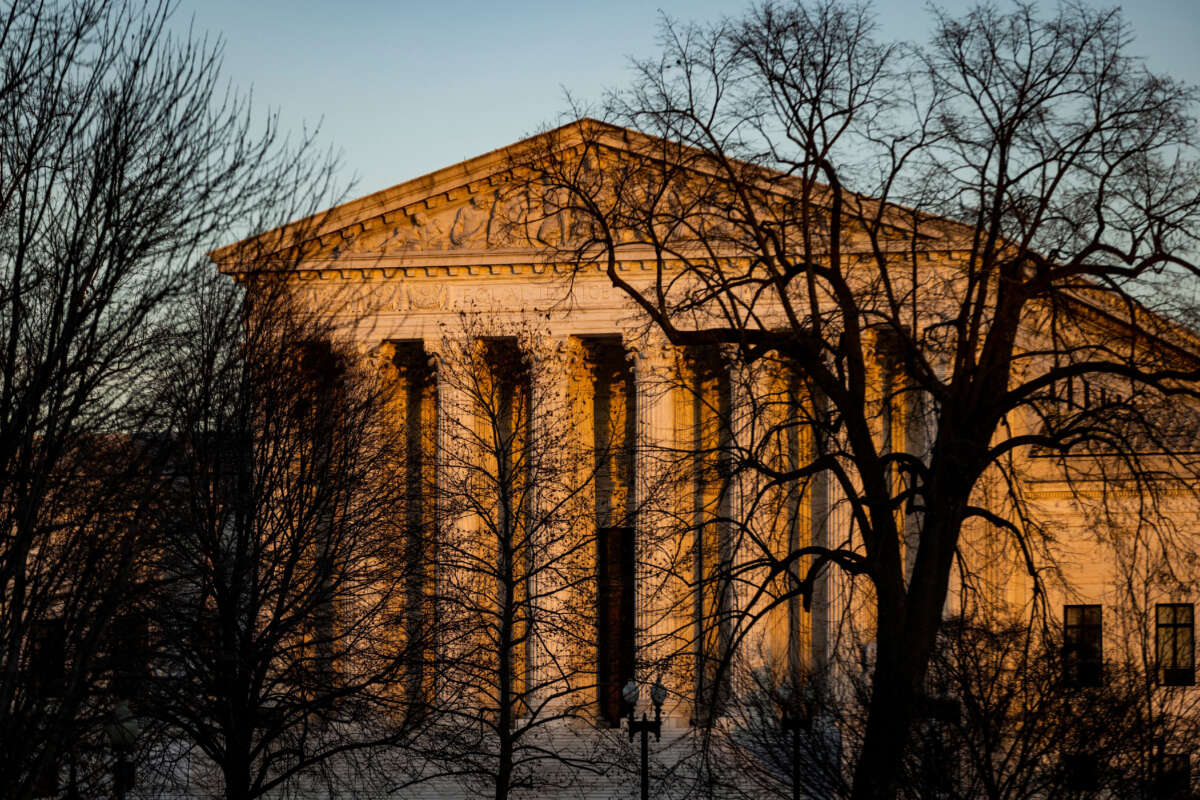On Thursday, the U.S. Supreme Court ruled not to intervene in a dispute involving a 12-year-old transgender girl and the state of West Virginia after GOP lawmakers in the state attempted to block her from taking part in a girls’ track and field team.
In 2021, Becky Pepper-Jackson and her family sued West Virginia over a law banning students from participating in sports teams that don’t correspond with the sex listed on their birth certificate. Medical organizations have long stated that such bans are unnecessary and detrimental to children’s wellbeing.
A federal court placed an injunction on the law until the matter could be litigated further. In response to that action, West Virginia Attorney General Patrick Morrisey filed a writ of certiorari asking the High Court to lift the injunction.
On Thursday, the Supreme Court decided not to intervene, ruling that the lower court’s order could stand. The ruling means that Pepper-Jackson will be allowed to continue playing girls’ sports, at least for the time being.
The American Civil Liberties Union, the ACLU of West Virginia and Lambda Legal, which represent Pepper-Jackson and her family, issued a joint statement thanking the Court for agreeing not to interfere.
“We are grateful that the Supreme Court today acknowledged that there was no emergency and that Becky should be allowed to continue to participate with her teammates on her middle school track team, which she has been doing without incident for three going on four seasons,” the statement said, adding that Morrisey’s attempt to lift the injunction was “a baseless and cruel effort to keep Becky from where she belongs — playing alongside her peers as a teammate and as a friend.”
Two far right conservative bloc justices disagreed with the Court’s ruling. Supreme Court Justices Clarence Thomas and Samuel Alito dissented with the action, with the latter justice writing in an opinion that the Court will be “required to address [the issue] in the near future.” The language of that opinion — referencing a person’s “genes or physiological or anatomical characteristics” — left little doubt about how he would rule in future cases.
A future Supreme Court ruling on trans sports bans seems inevitable, as around 20 states have implemented similar bans on transgender student athletes. At least two of these bans are under federal injunctions similar to the one in West Virginia.
Meanwhile, Republicans in Kansas voted earlier this week to override Gov. Laura Kelly’s (D) veto of a trans sports ban that the state legislature had passed last month. The new law is especially dangerous and invasive, LGBTQ advocates have noted, as comments made by the Republican author of the legislation indicate that it could allow “genital inspections” of student athletes to ensure they are not trans.
Trans sports bans and other anti-trans bills are “organized attack[s] on queer rights with the ultimate goal of elimination,” legislative researcher and advocate for trans rights Allison Chapman said last month.
Press freedom is under attack
As Trump cracks down on political speech, independent media is increasingly necessary.
Truthout produces reporting you won’t see in the mainstream: journalism from the frontlines of global conflict, interviews with grassroots movement leaders, high-quality legal analysis and more.
Our work is possible thanks to reader support. Help Truthout catalyze change and social justice — make a tax-deductible monthly or one-time donation today.
